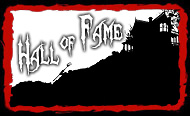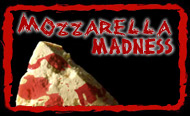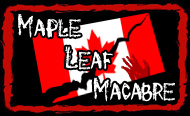
Halloween (2007)
No movie from last decade cleaved through the horror community quite like Rob Zombie’s Halloween. While most—if not all—of the era’s major remakes were met with some degree of skepticism, it’s fair to say that those films were eventually mostly embraced or just dismissed as harmless diversions. Not Halloween, though: it seemed like you either loved it or completely hated it, with little room in between. Lines were drawn and lots of digital ink was spilled on message boards and blogs as horror fans reckoned with a film that still proves to be divisive, even a decade after its release. In that time, I would like to say that I’ve at least entertained the notion of crossing the line and finally coming to grips with it, but I’m afraid I’m always destined to find this one to be a dubious effort, one that finds Zombie slipping on a pair of tattered bad idea jeans for a bold re-imagining that he was never quite fit for.
John Carpenter famously told the shock rocker to go wild and do his own thing with Halloween, and, to his credit, Zombie does just that (until he doesn’t). With the exception of familiar names and the ill-fitting iconic theme music, this is unrecognizable as a Halloween movie for a good 45 minutes or so. Zombie’s opening crane shot—which allows viewers to descend into the hellish, trash heap squalor of the Myers house—doubles as a mission statement: gone is the atmospheric, Panavision elegance of John Carpenter’s original, replaced here with a grungy, noisy filth that pervades much of its director’s work. Zombie’s first—and arguably worst—idea is on full display, as he reveals the tumultuous domestic life of young Michael Myers (Daeg Faerch), immediately pulling the curtain back on Carpenter’s enigma. A bad idea on principle, it’s compounded by Zombie’s choice to resort to the cliché broken home explanation: far from a primal boogeyman, this Myers is an unremarkable, mundane psychopath who kills animals and constantly visits the principal’s office. He’s not The Shape; he’s simply another one of Zombie’s white trash maniacs doing Michael Myers cosplay.
And, to be completely fair, it’s bold as hell for this franchise; however, boldness alone is not grounds for praise, especially since this bad idea functions like a slash right to the jugular, causing the film to hemorrhage even more bad ideas, including (but certainly not limited to): the presence of Ronnie White (William Forsythe), Michael’s trailer trash step-father, who’s introduced leering at young Judith Myers’s (Hannah Hall) ass; a heated argument that features a threat of skullfucking; Michael being tormented by bullies who tease him about his mom being a stripper; a scene that crosscuts between a sulking Michael on Halloween night and his mom stripping, all set to Nazareth’s “Love Hurts”; Michael’s Halloween night rampage, which becomes unintentionally hilarious when he dons his iconic—but oversized—mask, creating the impression that we’re watching a dwarf dressed up as The Shape; an entire stretch of the film dedicated to Michael’s institutionalization at Smith’s Grove, where an increasingly frustrated Dr. Loomis (Malcolm McDowell) tries in vain to reach Michael; Michael’s eventual escape fifteen years later, when a pair of orderlies rape a fellow patient in his room.
As all of this unfolds, you’re aghast that nobody stepped in and tried to stop the bleeding. Yes, it’s most certainly a plunge straight into Zombie’s unhinged id—which I suppose is exactly what Dimension and Malek Akkad signed up for—but even a decade later, it’s somewhat stunning that it actually happened, particularly since the Akkad family has always been so precious with this property following the daring third entry. In this case, though, they handed the reins over to an absolute madman and allowed him to put his signature stamp on the franchise*, something that’s usually a cause for celebration for this sort of thing. Here, though, it’s still fair to say that Zombie’s sensibilities remain a poor fit for this title—though I have to admit this might be true of anyone tasked with tackling a reimagining of Halloween.
Where some—like Zombie himself, I’d wager—see Carpenter’s template as a sort of blank slate onto which you can project your own aesthetic and narrative idiosyncrasies, I find that blankness to be its strength: Carpenter's vision is tremendously unsettling because it’s ruthlessly efficient and expressly states that the evil on display cannot be reckoned with or explained away. Zombie’s take confirms that any bold reimagining is inherently unfaithful: simply put, it’s hard as hell to redo Halloween without it being either too alienating or a lifeless retread.
Zombie, of course, splits the difference when he resorts to his actual worst idea by ignoring Carpenter’s advice after all during the second half of the film, which is little more than a hasty rendition of the original film. After spending nearly an hour hacking away at the flesh of Halloween, he takes Carpenter’s familiar story beats and applies them like a tourniquet, almost as if to reassure the audience that this is Halloween after all.
Only Zombie can answer if this was done out of hesitation, obligation, or some combination of both, but it feels almost as if he painted himself into a corner and realized that perhaps this should feel a little bit more like a Halloween movie after all. Either way, it’s a disappointing move because I’d at least have a begrudging respect had Zombie plunged headlong into his own id instead of frantically trying to swim back to the surface of steadier waters. I know this sounds like a Catch 22 situation where he’s damned for upsetting the apple cart and damned for trying to fix it, but at least then we’d truly have Rob Zombie’s Halloween as opposed to this half-hearted, Frankensteined mess that feels more like Rob Zombie’s John Carpenter’s Halloween.
This second half is decidedly fine, if not weirdly perfunctory, as Zombie even dips into the well of the franchise’s sequels by keeping the infamous sibling angle intact between Michael and Laurie Strode (here introduced as a young baby the boy dotes over during childhood). Technically, his motivation is different this time around: where the original film thrived on Myers’s ambiguous, almost arbitrary whims, this one sees him definitely returning home to reunite with his sister—no matter how little sense that makes, logistically speaking (given that Michael is established as being very much human, it’s hand-waving bullshit that he preternaturally recognizes Laurie the moment she arrives on his doorstep). It makes little difference though, not when Myers spends the entire night butchering everyone anyway; save for a few flourishes during the film’s prolonged climax, it’s virtually Carpenter’s movie all over again, only with the half-assed suggestion that Michael is a 7-foot tall behemoth and doesn’t want to kill Laurie after all—well, until he does.
It’s especially disappointing because Zombie does manage to leave an indelible impression up until that point, mostly through an incredible cast that boasts the likes of Forsythe, McDowall, Sid Haig, Danny Trejo, Sybill Danning, Ken Foree, Brad Dourif, and Danielle Harris. Sherri Moon Zombie also has a nice turn as Michael’s poor mother, who must live with the knowledge that her son has become a monster. All these years later, it becomes more apparent that Zombie missed that this was the story he should have told; I almost wonder if Deborah Myers shouldn’t have assumed the Loomis mantle for the second half of the story instead of being unceremoniously shuffled out of the movie via a clichéd suicide scene. Maybe that means that Laurie Strode, too, could have been easily excised from this version; even though I still enjoy Scout Taylor-Compton’s performance, the character mostly feels like an obligatory holdover. Had Zombie’s vision been truly bold, he would have actually been daring in his treatment of these familiar characters instead of having them mostly retrace their predecessor’s steps.
After spending a decade thinking Zombie’s Halloween as a huge swing and a miss, it occurs to me now that it’s more like a foul ball that flies lazily into the stands: it’s thrilling for those few people who have a chance to catch it, while the rest of us are left shrugging at it in frustration. Still, I suppose it does prove to be somewhat fascinating each time I watch it since it does have its moments, which more than I can say about many of its remake contemporaries. With Zombie at the helm, this Halloween is never boring; sure, your interest is mostly piqued because his choices are so questionable, but I’ll take that over any quietly competent, middle-of-the-road retread any day.
*Some sequences—most notably Michael’s escape from Smith’s Grove—were reshot after test screenings, resulting in a stronger theatrical cut. That’s right: Rob Zombie might be the only person whose movie was ever improved by Dimension’s post-production tinkering.

Halloween II (2009)
Speaking of begrudging respect. At this point, that’s exactly how I’d describe my relationship with Zombie’s sequel, which is a much better effort precisely because its director did not give a fuck about placating the audience with familiarity. In fact, it plays like the inverse counterpart to its predecessor, as Zombie briefly indulges expectations with an early sequence that finds Myers stalking a traumatized Laurie through a hospital, just as Rick Rosenthal’s first sequel did. Just as Myers descends upon his prey, however, Laurie awakes, revealing that the entire sequence to be a recurring nightmare. In reality, two years have passed since her fateful encounter with her psychotic brother, and she is still quite unwell. Haunted by the memories of that horrific night, she’s attempted to piece her life back together alongside fellow survivor Annie Brackett (Danielle Harris), whose scars provide a constant reminder that both girls were lucky to survive.
It weighs heavily on both, and this is where Zombie’s follow-up proves to be quite perceptive in its exploration of trauma and grief. Where most slasher movie sequels are content to gloss over this—most often by dispatching the surviving final girl early on—Zombie purposely dwells on it to reveal that trauma can’t be dismissed in clichéd Hollywood fashion. At its core, Halloween II is a film about deeply damaged individuals doing all they can to endure in the face of that trauma. Some—like Laurie—turn to a new group of friends and a newfound goth sensibility that involves scrawling graffiti all over her bathroom walls; others—like Sheriff Brackett—tell dad jokes and regale their dinner table audience with anecdotes about Lee Marvin. Still others—like Dr. Loomis—exploit the tragedy for personal gain with a shameless tell-all book and an even more shameless promotional tour that winds through the same late-night talk show circuit that draws the likes of Weird Al Yankovic as a guest.
Back in 2009, I found most of this quite ghastly, particularly the treatment of Laurie and Loomis, two sacred cornerstones of the Halloween franchise here reimagined as varying degrees of shrill, awful human beings. Upon further reflection, however, it strikes me as perceptive and authentic on Zombie’s part to account for how that Halloween night would absolutely wreck its survivors. It makes for an uncomfortable, almost off-putting experience, but that somehow feels more correct now than it did when I first saw it. Part of that is probably due to my own shortsightedness when considering how trauma works—at the time, I saw it as another example of Zombie subjecting everyone to his weird, warped worldview, where it’s always 1977 where shaggy, long-haired dudes always have a shaggin’ wagon to score chicks and freaky girls adorn their walls with Charles Manson pictures.
Looking past these weird embellishments now, however, I find an sharp portrayal of wounded individuals—including Michael himself, now an unkempt backwoods hobo whose mommy issues have manifested as bizarre, hallucinatory visions of both his late mother and his younger self. Zombie’s biggest misstep in the film, these visions prove to be both too ethereal and on the nose at once, functioning mostly as Zombie’s clunky acknowledgment that this crucial relationship was bungled the first time out, resulting in this awkward resurrection of sorts for Deborah Myers as an angel of death, so to speak. You absolutely get what Zombie is up to—he even spells out the purpose of the spectral white horse with an explanatory title card—but it proves to be heavy-handed in his hands and ultimately causes the film to wander off into nonsense a bit too often.
Those diversions aside, however, this is one hell of a slasher movie: both atmospheric and brutal in equal measure, Halloween II achieves a sort of ethereal, gore-soaked artistry. Far removed from the elegance of Carpenter (or even Rosenthal) due to its unrelenting, manic savagery, it instead taps into the well of violent sublimity that marked the Euro-horror heyday: this is a mesmerizing descent into madness, where every act of violence is a primal howl of a confused child, with the camera dwelling on each wild, flailing stab and every ruthless curb stomp. Zombie has always been at his best when indulging these primal urges, and Halloween II proves to be no different: as a slasher, it’s an unhinged display that renders Michael’s outbursts into a macabre tapestry of sick effects work and genuinely haunting brutality.
A scene where Michael breaks into the Brackett home to murder Annie is among the best in his career, as it’s captured in fractured, fleeting flashbacks when Laurie discovers her mangled body. Deaths in slasher films rarely have this sort of impact, and Dourif’s gut-wrenching reaction only heighten how fucking bleak this movie is in its attempt to recapture the downright sinister vibes lurking within the hearts of Halloween II and III. DP Brandon Trost is instrumental in transforming Haddonfield into a dreary backwoods haunt, its small town Americana vision of Halloween consistently twisted into a carnival of bloodshed.
Affecting scenes like Annie’s death and the surreal flourishes throughout make this a different sort of slasher, especially in the context of this franchise, where each entry starting with the fourth trended towards being standard (albeit entertaining) splatter fare. Zombie certainly racks up quite a body count here, but there’s still a sense that he’s threading all of the carnage through this intimate, bleak tale about a circle of damned souls spiraling towards oblivion. While it certainly takes some odd missteps (especially down the stretch in either version, though, again, the theatrical is superior), it makes for a Halloween film unlike any other; for better and for worse (but mostly for better), this is Zombie’s pure, unfiltered stab at slaughtering the sacred cow he let off the hook the first time around. In keeping with his vision of the Shape, it’s a gangly, barbaric massacre, but it leaves Halloween turned inside-out, as Zombie matches his bold storytelling impulses to effectively decimate whatever precious, preconceived notions might linger about this franchise.
Stay tuned throughout the year as Slashbacks revisits more titles reviewed during OTH’s first 10 years. comments powered by Disqus Ratings:








